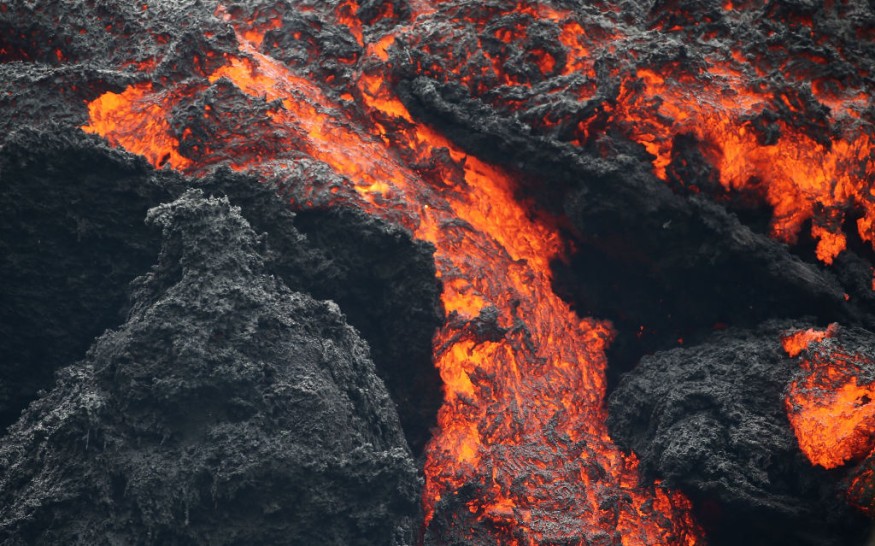Hawaii Residents Are Warned That Mauna Loa, World's Largest Active Volcano, May Erupt

Mauna Loa, the world's largest active volcano, is showing some level of increasing activity, so Hawaii officials warned residents of the Big Island that it may erupt.
According to Forbes, Talmadge Magno, the administrator for Hawaii County Civil Defense, told residents not to panic but urged them to be prepared as they lived on the slopes of Mauna Loa.
"There's a potential for some kind of lava disaster," Magno noted. Although a volcanic eruption is not imminent, some volcanologists were concerned about a recent increase in tremors at the summit.
The Hawaiian Volcano Observatory said Mauna Loa continues to be in a state of heightened unrest, with the number of small-magnitude earthquakes increasing "below Mokuʻāweoweo caldera and the upper northwest flank."
The agency, which is part of the U.S. Geological Survey, noted that historically, both the above regions have been "seismically active during periods of unrest on Mauna Loa."
The Hawaiian Volcano Observatory added that since the middle of last month, the number of summit tremors jumped from 10 to 20 per day to 40 to 50 per day.
Scientists believe that the ongoing seismic activity suggests that magma continues to rise to the volcano's surface from deep within the Earth.
READ NEXT : Hawaii Local News: Lava From Kilauea Volcano Threatens Residents at Speed of 15-20 Yards Per Hour
Mauna Loa in Hawaii Known to Spew Out Huge Amounts of Lava in the Past
According to Associated Press, during the 1950 eruption that lasted 23 days, the Mauna Loa volcano spewed 1,000 cubic meters of lava per second. In contrast, Kilauea, another active volcano on Hawaii's Big Island, released 300 cubic meters of lava per second in 2018.
Frank Trusdell, a research geologist at the Hawaiian Volcano Observatory, said people should look at the map made by his group to find out how fast lava could reach their area. He also advised residents to pay attention if the summit turns red.
"All you got to do is look up there and see the glow. You grab your stuff, throw it in the car and drive. Go!" Trusdell said.
He noted that people can always return home once the lava stops flowing into their neighborhood. Scientists said tremors could continue for a while before any eruption.
For example, the AP reported that an increased seismic activity lasted for a year before the 1975 Mauna Loa volcano eruption and a year and a half before the eruption in 1984. However, scientists also said the earthquakes could subside, and Mauna Loa may not erupt this time.
Big Island Residents in Hawaii Seem Not Bothered by Possible Mauna Loa Volcano Eruption
Last weekend, county civil defense officials held a community meeting with more than 220 people in Ocean View. Lava could reach the Ocean View neighborhood in hours if molten rock erupts through vents on the southwest flank of Mauna Loa.
According to CBS News, Ryan Williams, the owner of the Margarita Village bar in Hilo, said their customers were already used to warnings and were not worried about the volcanic unrest.
"Everything I've read or heard, they trying to kind of assure people that conditions have not changed. There's no imminent eruption, but just to be alert," Williams noted.
But since government representatives have been hosting town hall meetings and advising residents to prepare, there can still be a heightened sense of urgency.
The current alert level is "advisory," which means the Mauna Loa volcano shows signs of unrest, but there is no indication that an eruption is likely or certain.
According to Magno, his agency is now talking to residents because those living closest to vents might not have enough time to respond and prepare once the alert level is raised to "watch," which means an eruption is imminent.
READ MORE : Uvalde School Shooting: New Video Highlights Massive Failure of Texas Police During Tragic Attack
This article is owned by Latin Post.
Written by: Bert Hoover
WATCH: Hawaii's Big Island Gets Warning as Huge Volcano Rumbles - From KITV
Subscribe to Latin Post!
Sign up for our free newsletter for the Latest coverage!














